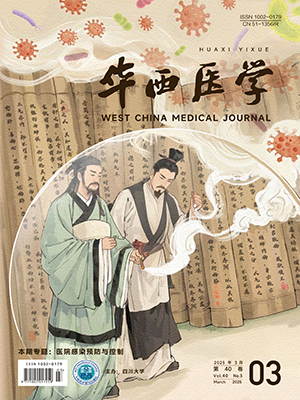| 1. |
邓硕曾, 刘进. 血液保护与输血安全[M]. 成都:四川科学技术出版社, 2007:125-164.
|
| 2. |
Carvalho B, Ridler BM, Thompson JF, et al. Myocardial ischaemia precipitated by acute normovolaemic haemodilution[J]. Transfus Med, 2003, 13(3):165-168.
|
| 3. |
Kreimeier U, Messmer K. Perioperative hemodilution[J]. Transfus Apher Sci, 2002, 27(1):59-72.
|
| 4. |
田玉科. 围术期输血指南[J]. 中国继续医学教育, 2011, 3(10):124-128.
|
| 5. |
Brecher ME. Technical Manual[M]. 15th ed. Bethesda:America Association of Blood Banks, 2005:633-661.
|
| 6. |
Kumar R, Chakraborty I, Sehgal R. A prospective randomized study comparing two techniques of perioperative blood conservation:isovolemic hemodilution and hypervolemic hemodilution[J]. Anesth Analg, 2002, 95(5):1154-1161.
|
| 7. |
陈培敏, 谢红, 李红, 等. 急性非等容性血液稀释的临床研究[J]. 中国血液流变学杂志, 2003, 3(13):294-297.
|
| 8. |
王清秀, 靳风玲, 金清尘, 等. 手术病人对急性等容血液稀释的耐受程度[J]. 中华麻醉学杂志, 1997, 17(11):652-655.
|
| 9. |
王建珍, 薄志华, 李蔚波, 等. 急性等容量血液稀释在骨关节手术中应用[J]. 中国临床医学, 2010(2):254-256.
|
| 10. |
黄建华, 卢泽安. 七氟醚吸入全麻联合急性高容量血液稀释对老年人血流动力学和脑氧代谢的影响[J]. 临床医学, 2010, 30(5):88.
|
| 11. |
姚泰. 生理学[M]. 5版. 北京:人民卫生出版社, 2006:81-85.
|
| 12. |
Van Daele ME, Trouwborst A, Van Woerkens LC, et al. Transesophageal echocardiographic monitoring of preoperative acute hypervolemic hemodilution[J]. Anesthesiology, 1994, 81(3):602-609.
|
| 13. |
董庆龙, 温晓晖, 欧阳葆怡. 急性高容量血液稀释对血液动力学及血液流变学的影响[J]. 中华麻醉学杂志, 2001, 21(5):8-11.
|
| 14. |
叶占勇, 吴勤, 刘合年, 等. 急性高容血液稀释对红细胞流变学的影响[J]. 四川医学, 2007, 28(3):247-248.
|
| 15. |
于布为, 顾敏杰, 薛庆生. 急性超容量血液稀释对氧供、氧耗、循环血容量和血管外肺水的影响[J]. 临床麻醉学杂志, 2003, 19(1):23-26.
|
| 16. |
李前辉, 王玲, 吴青华, 等. 术前急性高容量血液稀释对患者内稳态的影响[J]. 实用医药杂志, 2010(1):21-24.
|
| 17. |
张象麟. 药物临床信息参考[M]. 成都:四川科学技术出版社, 2007:1242-1243.
|




